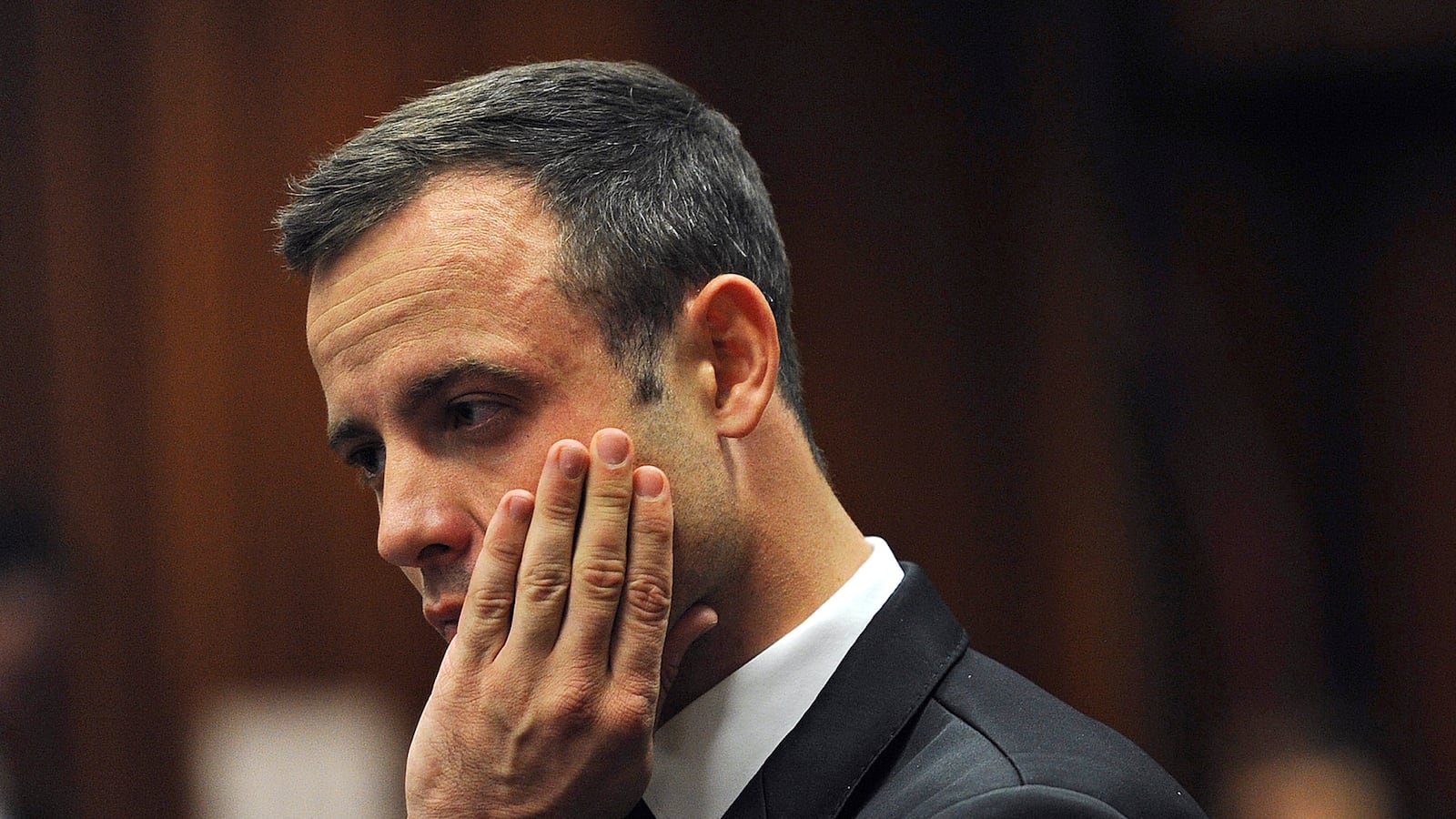South Africa’s former Olympic golden boy, Oscar Pistorius, went on trial for murder this week. The entire world was rocked last Valentine’s Day when Pistorius admitted to shooting and killing his model girlfriend Reeva Steenkamp. While it's undisputed that Pistorius was the triggerman, what lies at the center of the murder trial is whether he intentionally shot and killed this beautiful young woman, or as he claims, he mistakenly believed there was an intruder breaking into his home so he fired four shots through a locked bathroom door in an effort to protect himself and Steenkamp from serious harm.

For many, Pistorius’s claims seem far-fetched and a bit too convenient. The prosecutors have outlined their theory of the case as Pistorius being a hot-headed, trigger happy, jealous boyfriend who flew into a rage at the wee hours of night and deliberately murdered his girlfriend after the couple had an intense argument. Bolstering their version of the events, the prosecutors have also charged Pistorius with two additional charges of discharging a firearm in public. One incident involves him accidentally firing a handgun in a restaurant, and the other charge stems from him allegedly firing a gun through the sunroof of a girlfriend’s car. Despite seemingly damning evidence already coming to light against Pistorius (including testimony that Pistorius lied and asked a friend to take the wrap for the accidental restaurant firing and neighbors testifying about screams and arguments heard the night of the killing), there are four big reasons Pistorius might avoid a conviction of Steenkamp’s premeditated murder.
First, no jury and only one judge: Unlike the American justice system where traditionally an offense of this nature would be tried in front of a jury of the defendant’s peers, South Africa abolished jury trials in 1969. Therefore, Pistorius’s fate will be determined by a single judge, Thokozile Masipa. There is an old trial lawyersaying: “When the facts aren’t on your side you argue the law and when the law isn’t on your side you argue the facts.” The facts look pretty bad for Pistorius, and therefore his defense team will do what they can to poke holes in the credibility of the prosecutor’s witnesses, but his defense team will ultimately have to argue the law. They are in luck because it’s much easier to plead a case based on the law in front of a judge because juries, while given instructions on how to interpret the law, still default to human instinct and find facts much more persuasive than most judges. If ever there was a time to wish for a judge-determined outcome, Pistorius’s defense team would submit that it’s right about now.
Second, South Africa’s hyper violent environment: There are parts of the U.S. that are pretty damn violent. Detroit, Oakland, and Baltimore all come to mind when thinking of our most dangerous metropolitan areas. But even our most dangerous places don’t come close to what South Africans deal with on a daily basis. According to police statistics, around 45 people are murdered every day and home burglaries are up 70% in the past decade. When asked, over half of all South Africans told police they were afraid of having their homes broken into. Pistorius even told police that he has previously been the victim of burglaries, violence, and death threats. Not to mention Pistorius is a double amputee who is certainly more physically vulnerable than his able bodied peers. This could all add up to make the judge much more inclined to believe Pistorius’s claims that he has a real and reasonable fear of an armed intruder, a fear so real that it caused him to mistakenly shoot and kill his innocent girlfriend.
Third, the judge might go with the lesser charge: Obviously the prosecutors and family of Reeva Steenkamp want Judge Masipa to return a verdict of guilty to premeditated murder, but she may also consider the lesser offense of culpable homicide. The lesser charge is akin to America’s manslaughter charge and holds the defendant accountable for the wrongful killing but eliminates the premeditation and intent aspect of the killing. Essentially, its negligent homicide. If Judge Masipa is convinced of some but not all of the prosecution’s evidence we could very well see her return this reduced verdict. Sentencing wise that would mean instead of serving the mandatory life sentence attached to a premeditated murder conviction, Pistorius would face 15 years in prison but could get a non-custodial sentence. Sentencing for culpable homicide is completely up to the judge’s discretion, which is another benefit for Pistorius.
Fourth, South Africa’s appeal process is different than America’s: In the U.S., we hold our jury system in the highest regard and its incredibly difficult to get jury verdicts overturned on appeal. The presumption is if twelve impartial people reached a conclusion beyond a reasonable doubt, who is the appellate court to question it? The presumption is rebuttable but absent judicial or attorney error, it's almost impossible. Since South Africa doesn’t have a jury proceeding, the appellate court has considerably more leeway to overturn a lower court finding. While judges are reluctant to step on the findings on a jury they are far more willing to reverse a fellow judiciary’s finding. In the event that Pistorius is convicted, this distinction could serve him favorably.
While things don’t look good for Pistorius, his defense team does have some hope. The brutal killing of this innocent young lady is beyond tragic, and human sensibilities demand someone be held accountable. Judges and juries are impossible to predict. But under these facts, if you had to place your fate in the hands of one…you’re certainly better off going with the one professionally bound to cast aside emotions in lieu of strict legal analysis.




